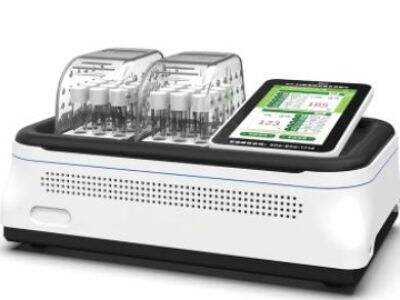Wszystkie żywe istoty bardzo potrzebują wody. Jest ona niezbędna do życia, dlatego każdy jej potrzebuje, aby móc prowadzić zdrowe życie. Ważne jest, aby każdy upewnił się, że pije czystą i bezpieczną wodę. Włączając w to picie, gotowanie i mycie, potrzebujemy świeżej wody do wielu rzeczy. Co więcej, musimy zweryfikować, jak dobra ona jest. Jednym ze sposobów, w jaki to robi, jest mętność. Mętność daje nam wskazówkę, czy woda jest czysta, czy też zawiera zanieczyszczenia.
Mętność jest miarą liczby małych cząstek zawieszonych w wodzie. Może to powodować, że woda wydaje się mętna, co jest niepożądane. Mętność może pochodzić z różnych źródeł, w tym z gleby, ścieków domowych i przemysłowych lub alg, małej rośliny rosnącej w wodzie. Jakość wody analizator Wysokie zmętnienie wskazuje, że w wodzie znajduje się wiele cząstek, co jest prawdziwym problemem nie tylko dla ludzi, ale także dla zwierząt i roślin w wodzie5. Wysokie zmętnienie może upośledzać widzenie ryb, ich zdolność do znajdowania pożywienia i zdolność do oddychania. Dlatego też, jak w przypadku wszystkich stworzeń, dużych i małych, czysta i przejrzysta woda jest tak ważna dla istnienia.
Jak oceniamy przejrzystość i bezpieczeństwo wody
Aby zmierzyć przejrzystość wody, mierzymy ją za pomocą miernika mętności. Tego rodzaju mierniki są niezwykle przydatne — informują o tym, jak przejrzysta jest woda. Miernik mętności działa poprzez świecenie światłem przez próbkę wody. Gdy światło przechodzi przez wodę, uderza w małe ciała stałe, które odpowiadają za mętność. Gdy światło uderza w te cząstki, ugina się lub załamuje. Mierzymy, jak bardzo światło jest ugięte, aby określić poziom mętności. Pomiar ten podawany jest w jednostce zwanej NTU, co oznacza Nephelometric Turbidity Units.
Mierniki mętności studni odgrywają znaczącą rolę w badaniu wody, ponieważ pozwalają nam zrozumieć, czy woda jest bezpieczna do spożycia, czy nie. Mogą one szukać małych zanieczyszczeń, takich jak drobne kawałki plastiku, lub większych rzeczy, takich jak brud i materia organiczna. Regularne badanie mętności jest najważniejsze, aby zapewnić, że woda pozostaje zdatna do picia, w rolnictwie, a także dla zwierząt wodnych. Jeśli nie sprawdzimy mętność metr, nie zawsze jesteśmy w stanie stwierdzić, czy woda jest zanieczyszczona, czy nie, co może powodować choroby u ludzi i zwierząt.
Jak mierniki mętności są przydatne do identyfikacji zanieczyszczeń?
Mierniki mętności odgrywają kluczową rolę w wykrywaniu zanieczyszczeń w zbiornikach wodnych. Kiedy zbiornik wodny ma wysokie mętności, zazwyczaj oznacza to, że coś jest nie tak i istnieje ryzyko skażenia. To skażenie może być szkodliwe dla ryb, roślin i innych dzikich zwierząt, które są uzależnione od czystej wody. Miernik mętności może pomóc naukowcom i ekologom w szybkim i łatwym określeniu, czy woda jest zanieczyszczona. I tester ph wody identyfikując te problemy, możesz interweniować, aby się nimi zająć i bronić planety. Liczniki te pomagają również społecznościom zrozumieć, czy ich woda jest bezpieczna do picia i kąpieli.
Dlaczego ważne jest monitorowanie mętności w czasie rzeczywistym
Kontrola zanieczyszczeń – monitorowanie mętności w czasie rzeczywistym Wcześniej badanie jakości wody wiązało się z wysyłaniem próbek do laboratorium, co było czasochłonne. Teraz możemy uzyskać natychmiastowe wyniki dzięki systemom monitorowania w czasie rzeczywistym. Pozwala nam to podjąć natychmiastowe działania, jeśli pojawi się problem z wodą. Problemy z zanieczyszczeniem środowiska są rozwiązywane szybciej i zapobiegają szkodom dla środowiska, ponieważ reagujemy szybko. Jest to tym ważniejsze w przypadku zanieczyszczenia wody, które może wystąpić niemal natychmiast po ulewnym deszczu lub spływie.
Lepsze zarządzanie wodą dzięki odczytom mierników mętności
Używanie odczytów mierników mętności używanych do mądrego i zrównoważonego zarządzania naszą wodą. Odczyty te informują badaczy i liderów o tym, gdzie woda najbardziej potrzebuje uwagi i skąd pochodzi zanieczyszczenie. Musimy pomóc chronić nasze źródła wody, abyśmy mieli czystą wodę dostępną dla wszystkich, teraz i w przyszłości. W ten sposób, korzystając z odczytów mierników mętności, możemy opracować odpowiednie plany zarządzania naszą wodą., podjąć kroki w celu ograniczenia tego, co dostaje się do naszej wody i zanieczyszcza ją w przyszłości.
 EN
EN
 AR
AR BG
BG CS
CS DA
DA NL
NL FR
FR DE
DE EL
EL HI
HI IT
IT JA
JA KO
KO PL
PL PT
PT RO
RO RU
RU ES
ES SV
SV CA
CA TL
TL IW
IW ID
ID SR
SR SK
SK VI
VI ET
ET HU
HU TH
TH TR
TR FA
FA AF
AF MS
MS GA
GA MK
MK BN
BN BS
BS LA
LA MN
MN NE
NE

